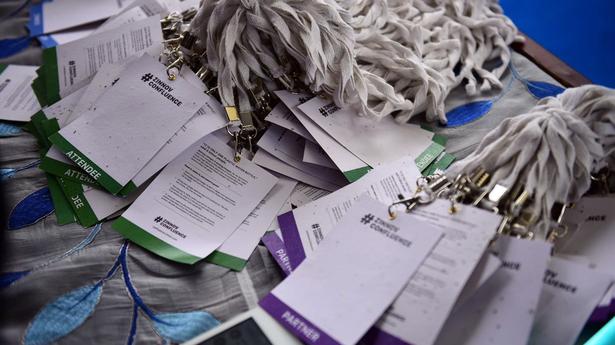
Corporate conferences inch towards zero waste
The Hindu
Sustainability consultants say the trend is gaining ground, but progress towards deeper green thinking is still slow-paced
In July, strategy consulting firm Zinnov organised “Confluence 2022”, an event that stood out as much for its sustainability component as for the array of thought leaders it paraded.
The sustainability narrative began at the very beginning. Mailers to attendees urged them to carry their own water bottles, notebooks and pens. It however did not leave anything to chance. At the venue, water stations were established. Paper pencils sourced from rural Karnataka were kept "on the ready". Delegates were encouraged to carpool. Plastic ID cards were replaced with seed badges tied to reusable cotton lanyards. The programme agenda was available through QR code scan.
At the food counter, biodegradable kulhads sourced from Varanasi served tea and coffee. With Hasiru Dala as eco partner, the waste generated at the event was either upcycled, recycled or converted to biofuel.
The green list is longer. Among the 35 items on the sustainability checklist were MDF-made booths as they are recyclable; swapping physical standees with digital ones; getting power from BS6-compliant generators; and using floor carpeting that optimises sound.
Businesses that help brands adopt sustainable practices and zero-waste solutions note corporate India is taking baby steps towards green thinking.
Last year, Steelcase partnered with Bare Necessities for a series of in-person workshops to help it transition to a sustainable organisation. Similarly, a car-manufacturing company with 800 employees was handheld for a year with campaigns, events and research to adopt sustainable practices.
"To embrace sustainability, it is important to engage employees in the co-creation of sustainable practices. For instance, Cognizant engaged with us for a self-paced online course ‘Zero waste living 101’ for its global workforce to see how one can transition the daily routine to one that is zero-waste and extend it to other aspects of life," says Mehul Manjeshwar and Sahar Mansoor of Bare Necessities.











